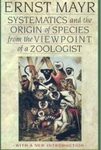![From Clockwork to Crapshoot From Clockwork to Crapshoot]()
Click to have a closer look
About this book
Contents
Customer reviews
Biography
Related titles
About this book
Science is about 6000 years old while physics emerged as a distinct branch some 2500 years ago. As scientists discovered virtually countless facts about the world during this great span of time, the manner in which they explained the underlying structure of that world underwent a philosophical evolution. From Clockwork to Crapshoot provides the perspective needed to understand contemporary developments in physics in relation to philosophical traditions as far back as ancient Greece.
Roger Newton, whose previous works have been widely praised for erudition and accessibility, presents a history of physics from the early beginning to our day--with the associated mathematics, astronomy, and chemistry. Along the way, he gives brief explanations of the scientific concepts at issue, biographical thumbnail sketches of the protagonists, and descriptions of the changing instruments that enabled scientists to make their discoveries. He traces a profound change from a deterministic explanation of the world--accepted at least since the time of the ancient Greek and Taoist Chinese civilizations--to the notion of probability, enshrined as the very basis of science with the quantum revolution at the beginning of the twentieth century. With this change, Newton finds another fundamental shift in the focus of physicists--from the cause of dynamics or motion to the basic structure of the world. His work identifies what may well be the defining characteristic of physics in the twenty-first century.
Contents
Prologue 1. Beginnings 2. The Greek Miracle 3. Science in the Middle Ages 4. The First Revolution 5. Newton's Legacy 6. New Physics 7. Relativity 8. Statistical Physics 9. Probability 10. The Quantum Revolution 11. Fields, Nuclei, and Stars 12. The Properties of Matter 13. The Constituents of the Universe Epilogue Notes Sources and Further Reading Index
Customer Reviews
Biography
Roger Newton is Distinguished Professor Emeritus of Physics at Indiana University. His books include Galileo's Pendulum, What Makes Nature Tick, and The Truth of Science (all from Harvard).



































